Luis Suarez: Get Your Knowledge Out in the Open

Posted by TallyFox on 28 May 2017
What makes Luis Suarez (Digital Transformation & Data Analytics adviser at Panagenda) insightful is not just his two decades of experience, it is the fact that he practices what he preaches. He challenges the way people communicate and collaborate by not relying on e-mail for all interactions and the way knowledge workers, typically, collaborate and share by promoting openness, transparency, trust, sustainable growth, engagement, connectedness and, overall, smart work.
He would say that he is a wirearchist, a Chief Emergineer and a People Enabler, and he explained why in this interview.
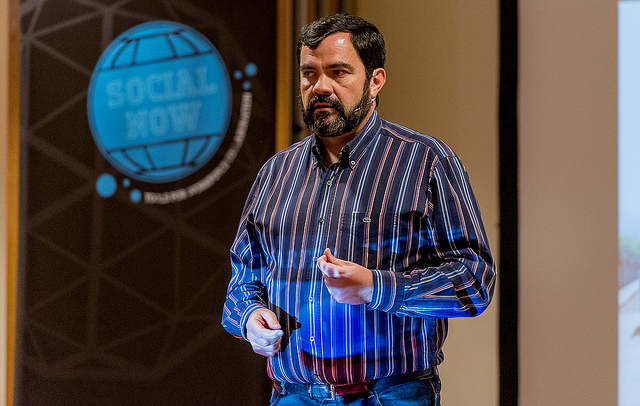
We had to ask about the e-mail first.
Luis Suarez: Yes, it's been almost ten years since I dropped email as my main communication and collaboration tool and it has led me through all sorts of transformational journeys on the way of how I get work done.
Have I been able to get rid of e-mail completely? The answer is no. I still use email for confidential 1:1 exchanges such as contractual agreements, for instance, but everything else just happens out in the open. I rely a lot more on social networking tools to get the work done. As a result, my knowledge is no longer just mine, it is out there, as part of the networks and communities that I work with and interact with. The members of those networks know just as much as I do which allows me to then focus on more complex problems. Why? For the relatively simple queries my knowledge is already out there for them, they just need to search for it. lt's been helping me redefine the way I work and find new business practices. It also helped me open up to a number of various different teams I work with, and show them my world to help transform the way they work if they found it enticing enough, and so far they have.
TallyFox: So much information gets buried in e-mail, not accessible to others that might need it without asking.
Luis Suarez: Not only that, e-mail inboxes are the first thing that gets deleted by HR when an employee decides to move on. Thousands of conversations, of relationships, of connections or content you have created and shared in the past are lost forever. E-mail is also used as a very powerful political corporate weapon. Some people use it to bully others and when they start playing political games using CC and BCC and who copies who on what then management gets involved and before you realize it you have lost track of the work that you need to do in the first place. E-mail is a powerful communication tool so I'm not against email as a tool I am against of how people abuse it for their own agendas versus looking out for the common good.
TallyFox: A lot of employees say they don’t use the tools they are provided with, why do you think that is?
Luis Suarez: That’s a very interesting question because everyone keeps saying that our biggest obstacle is technology, or the tools themselves. In my experience, that is not the case. Technology is just an enabler. It's about us. It's about culture, about our mindset, behaviours, habits that we have built up over the course of time, which makes them very difficult to shake off. I consider a deployment of a tool successful when a significant percentage of the employee workforce transforms their own work practices. For example, instead of defaulting always to choose private tools to collaborate with others, they move to open knowledge sharing tools to get their work done.
TallyFox: How would you define open knowledge sharing?
Luis Suarez: There is a mantra from the open source movement which says default to open, yet we don't share our knowledge, rather the opposite: we protect it, we hoard it. The well-known quote “Knowledge is power” makes us think “The more knowledge I share the more power I give up to other people”. However, in open systems the opposite is true. The mantra becomes “Knowledge shared is power”, so consequently, the more you share the more visibility you have, the more clarity you bring into your work, and the more effective you become as you no longer work in isolation but networked in different teams or communities of practice.
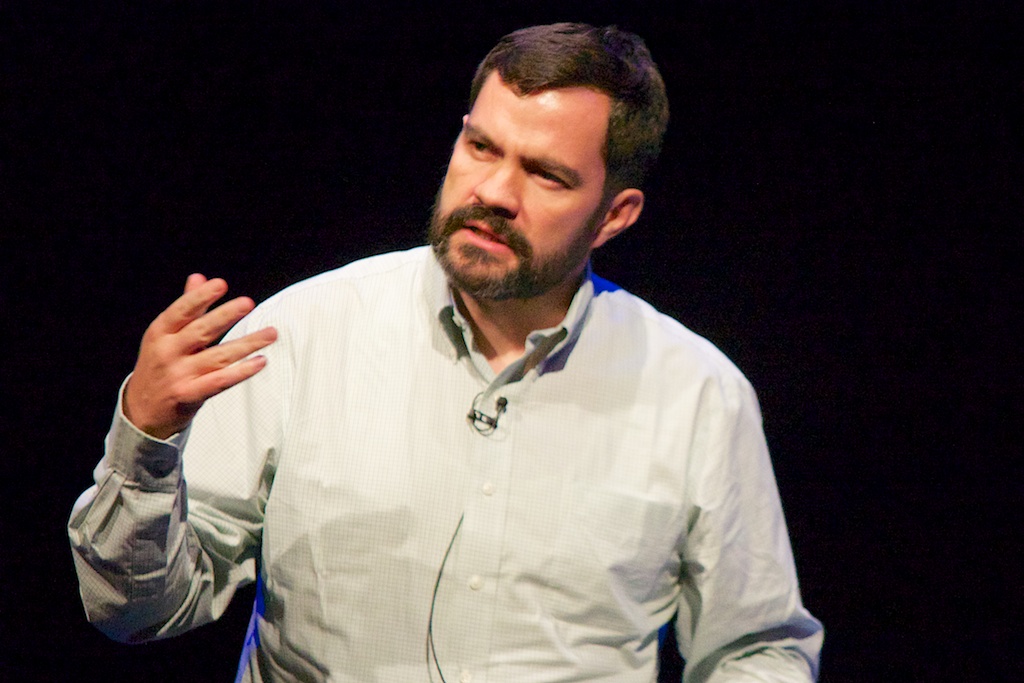
TallyFox: What can it do for us?
Luis Suarez: In my view, open knowledge sharing enables us to transition from closed private environments and shift our mindset from “close” to “public by default” so the non confidential work that you do can be shared along transparently through various enterprise social networking tools.
We then operate in networks and communities compared to just operating in siloed teams which we were doing so far. Organizations are working with customers and business founders so information or knowledge becomes available and it’s up to the worker to pull it accordingly as he/she may see fit. We transition from a push model into a pull model.
TallyFox: Some companies prefer to be siloed. What is your opinion on this?
Luis Suarez: Most of the technologies that we have nowadays don’t breach both worlds. The firewall itself is there for a reason, supposedly to protect intellectual capital and copyright. But, if you're looking at the information knowledge workers produce, 90% of it has got nothing to do with intellectual property or assets. Also, vast majority of interactions happen outside of organizations. Knowledge should be out there, in the open, where your customers and your business partners and even your competitors could see and reuse it, accordingly.
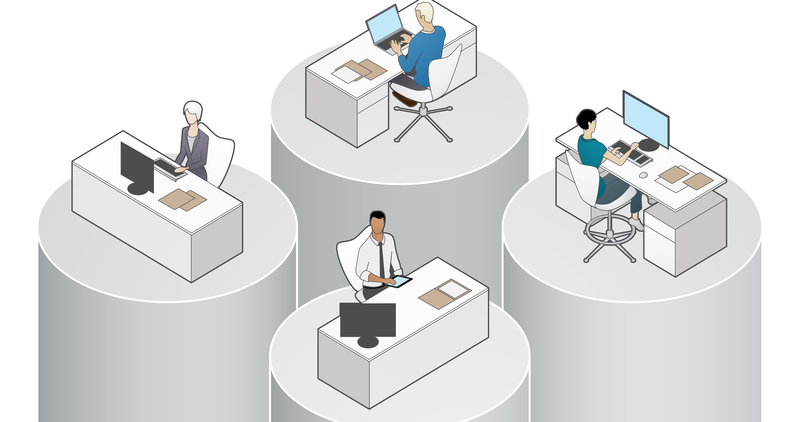
TallyFox: Are companies ready for that?
Luis Suarez: There is a movement called Open Business which operates on principle that by default you interact with customers out there in the open, through networks and communities and introduces a new way to radical transparency because companies are not used to share their knowledge openly with their customers and business partners. There are companies who even share the salaries of every single employee with their stakeholders. They share how the business is doing, their financials, the work they are doing etc. with everyone out there with access to the Internet. The reason for that is that most of the enterprise social networking tools available today promote the use of social networks and communities. There are hybrid environments with communities behind the firewall and outside of the firewall where you can invite your customers to collaborate and co-create together.
TallyFox: What does this change?
Luis Suarez: This redefines the whole notion of intranets because all of a sudden we’re moving into environments where customers get exposed to the same amount of knowledge that employees have and they, through processes of co-creation, co-ownership of the content, create relevant feedback loops. This way you receive more involvement from the customers because they demand it themselves, they want to know what you're doing with their money with your investments with their products.
At this point we should be transitioning into more open, outside of the firewall, interactions with our customers because eventually when we look into the so-called digital transformation the final frontier is not to help employees become more effective in what they do, but help employees be where their customers are. And customers are not behind a firewall, they are outside. This is a process, and you start by improving the way people collaborate internally so they become more comfortable and trustworthy amongst themselves and that is when you start interacting with the external world, clients and business partners.
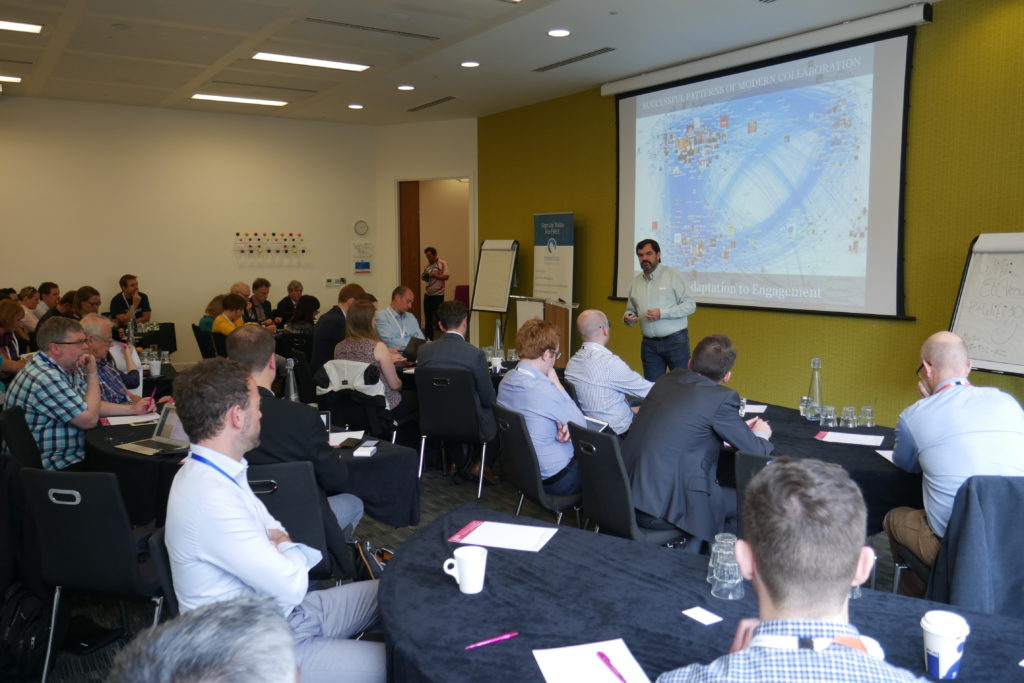
TallyFox: As a software company that offers the ability to open up communities on our network platform to, for example, customers, we ask how much of a challenge it is to not get buried under the pile of irrelevant information those customers provide? How do you make sense of all that knowledge?
Luis Suarez: As a starting point, we need to get a few things clear. We cannot manage knowledge. We cannot manage what we don't know we know. What we can do is provide the conditions to help people manage some of the knowledge that they have at their disposal. We, human beings, are very bad at documenting information and sharing it. Explicit knowledge exchange is a nightmare. Why? Because the moment that you put a piece of information on whatever the repository you’re using, it's already obsolete. We don’t need more content. Content is NOT King, connections are, relationships are, what people know in their heads is what matters the most.
I am not very particularly fond of using any knowledge management system that relies just on content because it's fundamentally flawed. I am more into systems that focus on the actual knowledge worker, on the actual employee, because I’m much more interested in how people connect with each other and build relationships through content. I find it more interesting when employees can actually find other employees based on mutual interests, based on mutual content that will benefit both of them. Knowledge management systems need to put together an opportunity to build people-centric systems, not document-centric systems.
TallyFox: Is it fair to say that you are more on the human side of knowledge management than on the technology side, when you say that we need to build more people centric systems?
Luis Suarez: To me the human side is the most important and I'll explain my views with a very practical example. You can have the best technology in the world, the best tools, the best business processes, but if you don't have the right people you’ve got nothing. You can also have very poor technology, poor processes but if you have the right people you've got everything! if you ask most of the organisations nowadays about the digital tools they use, SharePoint and Office 365 are mentioned. That tells me they work for an organization that is document centric and that their collaboration revolves around a document.
Today vendors and consultants have put too much focus on technology and processes and have left people behind. We became assets, resources that are there to be exploited. All of a sudden, social digital tools such as enterprise social networking tools appeared, putting people first. Immediately, we have this influx of people flocking like crazy and creating content, building and nurturing relationships, equalising the pyramid of technology process and people, but it’s taking time because it’s not easy to change behaviours, but the potential is huge.

TallyFox: You spoke about people being left behind. What can management do to prevent that from not happening?
Luis Suarez: Managers should get out of the way. I always get asked about what the major obstacle is from adapting to enterprise social networking environments and my response has always been and still is: management. The mindset “I tell you to do this and you go and obey” needs to go. Managers should focus on the strengths of the employee - knowledge, experience and expertise. You manage resources. You lead people. When you introduced me as a wirearchist, you were right. We work in a wirearchy, in networks of networks, and management needs to understand their new role in those networks where they need to earn every single day the trust of their employees by contributing, sharing and learning. In an environment where information flows freely and is available to everyone in equal terms that advantage disappears because managers need to understand that they’re no longer managers they need to become leaders if they want to be in that position, they need to earn that influence to model new user behaviours. They don’t have it by default.
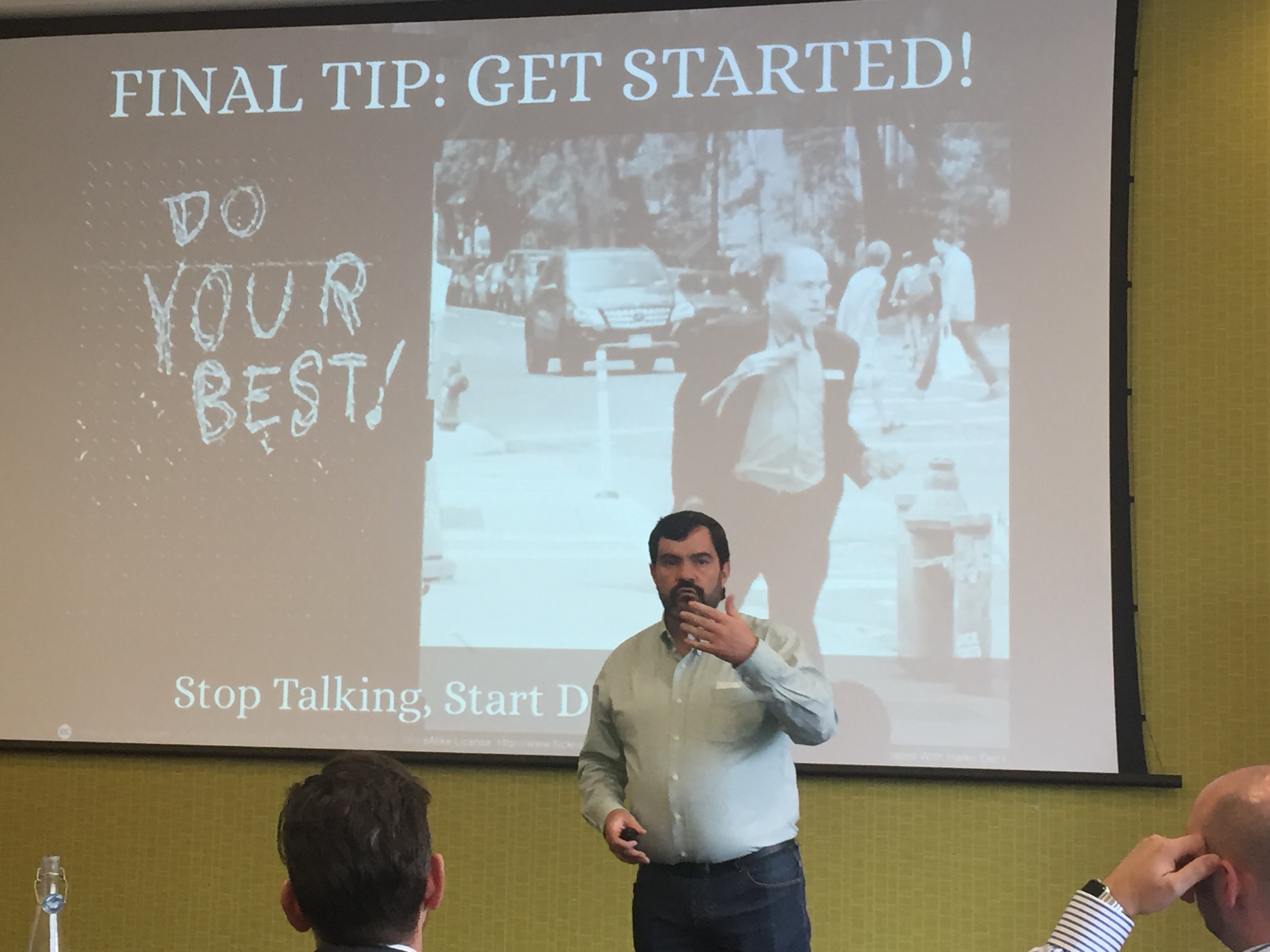
TallyFox: What do you think of knowledge management today? The software solutions that are offered, frameworks, the work companies are doing with their employees, etc.?
Luis Suarez: If I were to put my hat of being the knowledge manager I was 20 years ago and would look at the tools, business practices, processes and everything else that relies on the notion of how we help organizations manage some of their knowledge right now I would say KM is pretty much dead. But when I look at the work that’s been happening around the so-called digital transformation and social business change initiatives I would say that knowledge management is rather healthy. The reason why I'm saying that is because both knowledge management and social business are one and the same, but with a different moniker. They share the same philosophy and vision from all along: share, connect, collaborate and learn more effectively with (social) tools as key enablers.
TallyFox: That’s a bold statement.
Luis Suarez: I know that plenty of people are not going to like this because ‘management’ in knowledge management will freak out everyone who does social and ‘social’ will freak out everyone who does knowledge management. The truth is that they both ask the same question: “How can I get work done more effectively by sharing what I know and learning along the way?”. Both groups have the same goals and operate by the same principle that I mentioned earlier when asked about technology processes and people. Social business is about bringing back the people aspect and knowledge management is about having that technology, those business processs in place. Social tools are helping us challenge the status quo of traditional knowledge management systems, that were only interested in your content, by sending out a stronger message which is: “We care about your content, but we care even more about you as the individual who contributes that content. We care about the relationships and the connections that you build, about the network that you nurture and about the communities you are participating in and co-creating value with”. That is where the magic happens.
This interview left us nodding our heads and we would encourage you to get acquainted with Luis’ work by visiting his website or following him on Twitter.

Comments
Leave a comment